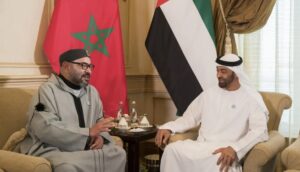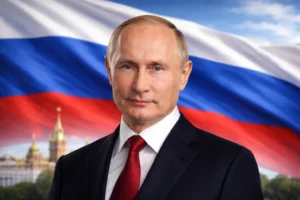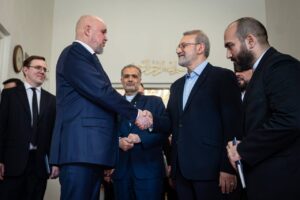UAE and Russia Hold Second Strategic Financial Dialogue in Dubai

Dubai, The Gulf Observer: The United Arab Emirates, represented by the Ministry of Finance, today hosted the second UAE–Russia Strategic Financial Dialogue at the Ministry’s headquarters in Dubai.
The meeting was co-chaired by Mohamed bin Hadi Al Hussaini, Minister of State for Financial Affairs, and Anton Siluanov, Minister of Finance of the Russian Federation. The dialogue aimed to enhance bilateral cooperation and explore ways to integrate artificial intelligence (AI) within public financial management, while promoting the exchange of expertise on digital transformation, financial governance, and technology risk management.
From the UAE side, the meeting was attended by Younis Haji Al Khoori, Undersecretary of the Ministry of Finance; Saeed Rashid Al Yateem, Assistant Undersecretary for Government Budget and Revenue Sector; Ali Abdullah Sharafi, Acting Assistant Undersecretary for International Financial Relations; Shabana Aman Khan Begum, Executive Director of the Tax Policies Sector; and Saqr bin Ghalib, Executive Director at the Artificial Intelligence, Digital Economy and Remote Work Applications Office, along with several senior officials from the Ministry of Finance.
The Russian delegation included Andrey Makarov, Chairman of the State Duma Committee on Budget and Taxes; Irina Okladnikova, First Deputy Minister of Finance of the Russian Federation; Alexey Sazanov, State Secretary and Deputy Minister of Finance of the Russian Federation; and Timur Zabirov, Ambassador Extraordinary and Plenipotentiary of the Russian Federation to the United Arab Emirates.
Welcoming the Russian delegation, Mohamed bin Hadi Al Hussaini highlighted that the meeting reflects the UAE’s commitment to broadening cooperation with Russia, particularly in the areas of financial innovation and digital transformation. He stated that the use of AI in budgeting, payroll management, and revenue forecasting offers significant opportunities to improve government performance and decision-making.
Al Hussaini emphasized that UAE–Russia relations represent a distinguished model of strategic partnership in the financial sector, adding that the UAE continues to strengthen its position as a global financial hub through investments in advanced technologies and innovation-driven institutional frameworks. He underlined the importance of the dialogue as a platform for exchanging insights on the future of digital financial governance, stressing that financial sustainability and smart governance depend on enhanced technical cooperation and joint initiatives to develop advanced forecasting tools and improve public resource allocation.
He further reaffirmed that the Ministry of Finance will continue to build on this collaboration through regular technical meetings aimed at implementing the dialogue’s outcomes and supporting sustainable development in both nations.
Anton Siluanov commended the growing partnership, noting, “In February of this year, the first meeting of the Russian–Emirati Financial Dialogue was successfully held, where we discussed a wide range of issues and laid the foundation for continuing work in this format. An important milestone was the signing of the updated Agreement on the Avoidance of Double Taxation.”
Siluanov added that both ministries are working closely in priority areas identified during previous sessions, creating favorable conditions for the development of Russian–Emirati relations, especially in the fields of economics, investment, and finance. He further revealed that trade between the UAE and Russia reached approximately AED 24.4 billion (US$6.6 billion) during the first half of this year — a reflection of the tangible progress in bilateral cooperation.
The dialogue also focused on strengthening financial and technical collaboration, particularly in applying AI to enhance government financial management systems. Key topics discussed included public budget planning, improving payroll management efficiency, and supporting digital economy initiatives in line with both countries’ shared vision for smart, innovation-led growth.
The meeting featured three technical sessions:
- Government Budgeting: Discussing the application of AI in budget formulation, revenue collection efficiency, and macroeconomic forecasting.
- AI Applications in Payroll Management: Featuring a presentation on the “Smart Payroll Officer” concept.
- Artificial Intelligence in the Digital Economy: Exploring emerging AI-driven models and technologies shaping the global digital economy.
Concluding the meeting, both ministers underscored the importance of maintaining continuous cooperation, regular follow-up sessions, and knowledge exchange to ensure the effective implementation of joint initiatives that advance financial innovation and sustainable development in both countries.


